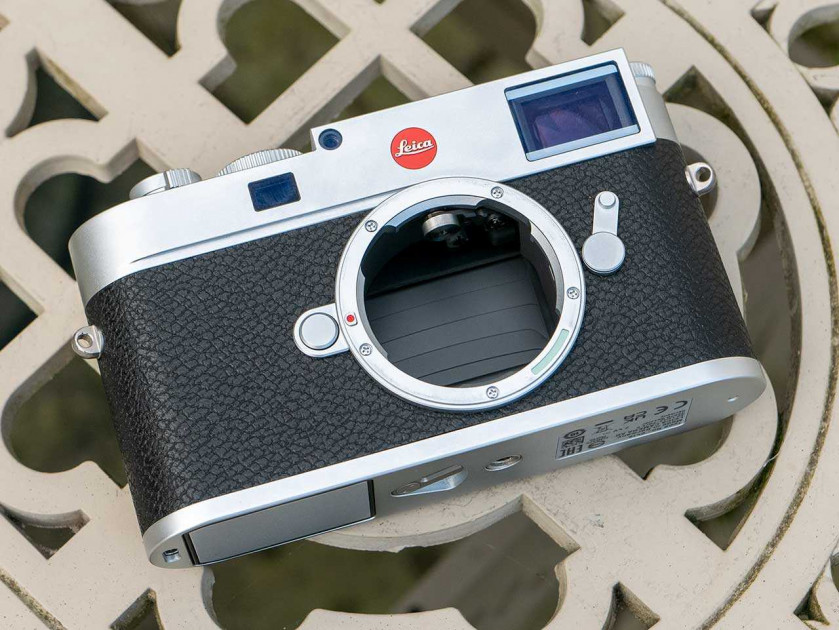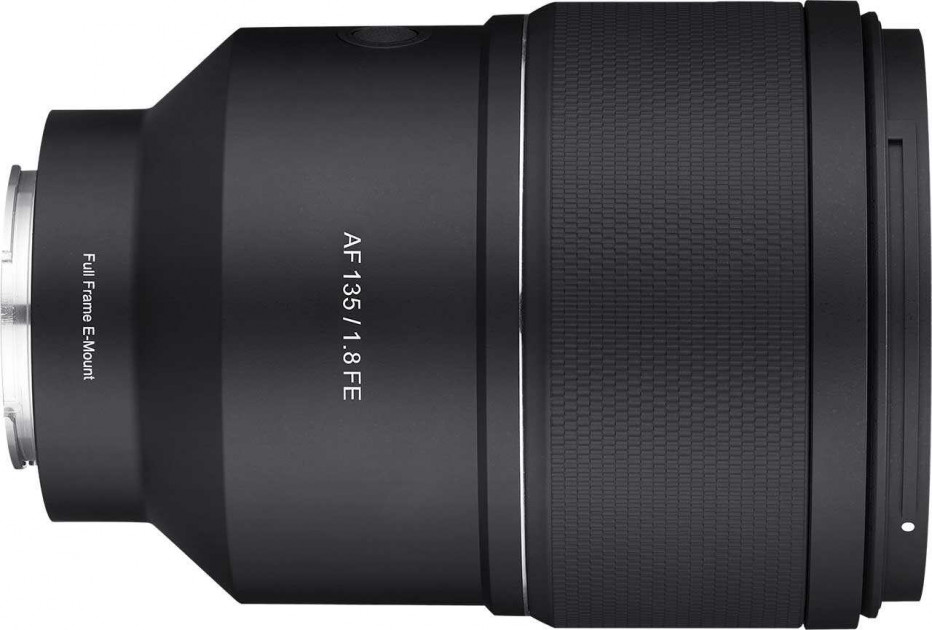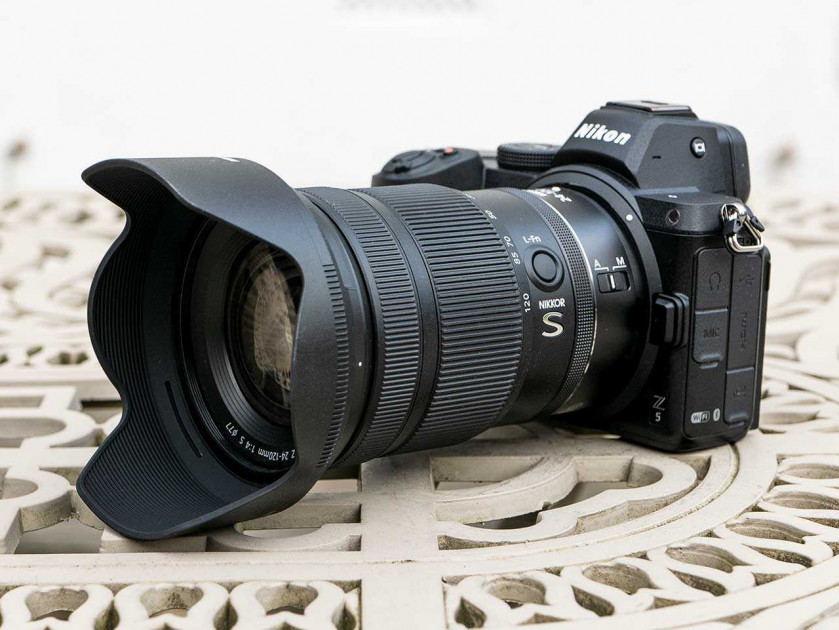
Introduction
The Nikon Z 24-120mm f/4 S is a versatile 5x travel-zoom lens for Nikon Z-series full-frame mirrorless cameras.
It can also be used on an APS-C cropped sensor camera body like the Z50 and Z fc, where it offers an effective 36-180mm focal range.
It features an optical structure comprised of 16 elements in 13 groups, including 3 ED elements, 1 aspherical ED element, 3 aspherical elements, elements with Nano Crystal and ARNEO coats, and a fluorine-coated front lens element.
This lens has a 9 blade diaphragm which creates an attractive blur to the out-of-focus areas of the image and it has a dust and drip resistant design.
An internal focusing mechanism means the lens barrel doesn’t move, and it offers an impressive minimum focusing distance of 0.35m (1.15ft) and a maximum magnification ratio of 0.39x, whilst using 77m filters.
There’s a configurable ring on the lens barrel which allows you to control either aperture, exposure compensation or ISO speed.
The Nikon Z 24-120mm f/4 S lens is available now priced at £1099 / $1099 in the UK and the US, respectively. It is designed in Japan and made in Thailand.
Ease of Use
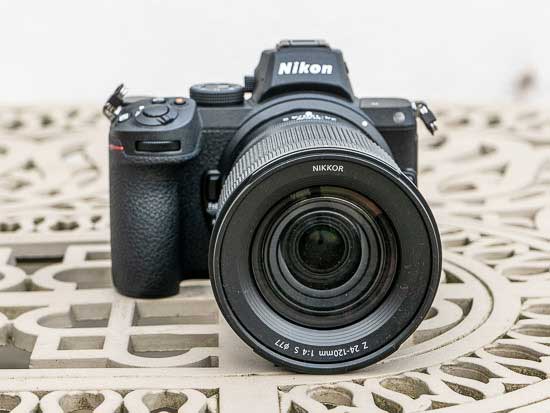
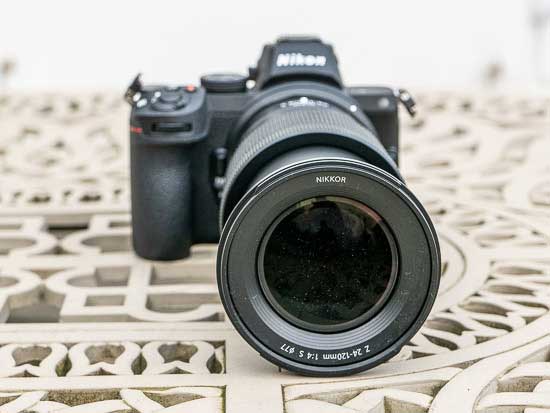
Weighing in at 630g (1 lb 6.3oz) and measuring 118mm (4.7in.) in length (when set to the 24mm focal length), the Z 24-120mm f/4 S is a relatively light and compact lens given the versatile focal range of 24-120mm that’s on offer.
It feels well balanced even when using it with a small sized camera body like the Nikon Z5 body that Nikon provided for us to test it with, as shown in the product photos, and would also be equally at home mounted on a larger Z6 or Z7 camera.
The lens extends further by an additional 6cm to reach a total length of 18cm when fully zoomed out to 120mm.
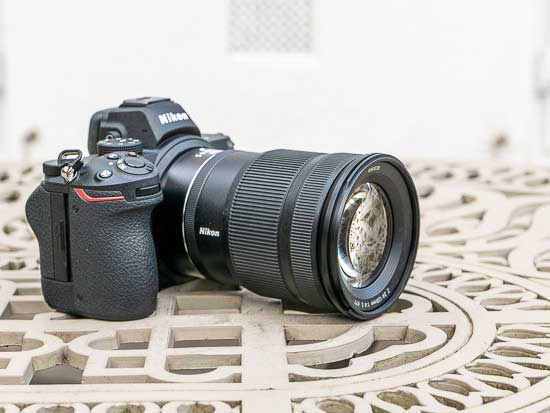
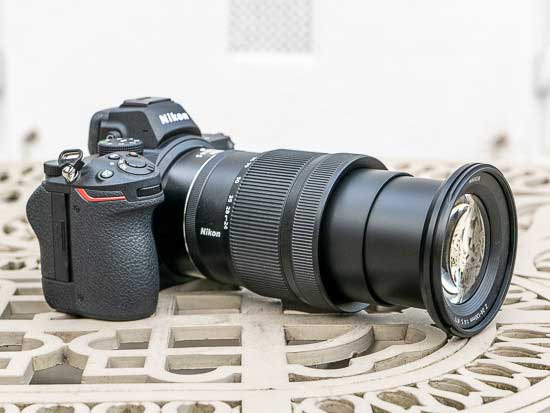
Build quality is good, but not outstanding, for what is after all only an enthusiast -level lens. With a mostly plastic construction, the Z 24-120mm f/4 S feels fairly solid in your hand, and it commendably has a metal mount.
Note that this lens also has a weather-resistant design to help protect it against dust and moisture. Nikon state that “The lens is not guaranteed to be dust- and drip-resistant in all situations and under all conditions.“
There is a single switch on the left hand side of the Z 24-120mm f/4 S lens which is for choosing between auto-focusing and manual focusing.
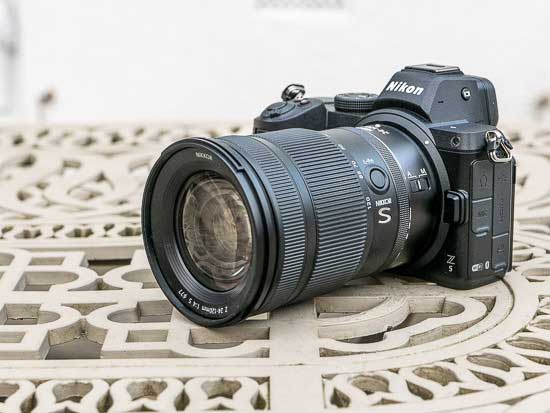
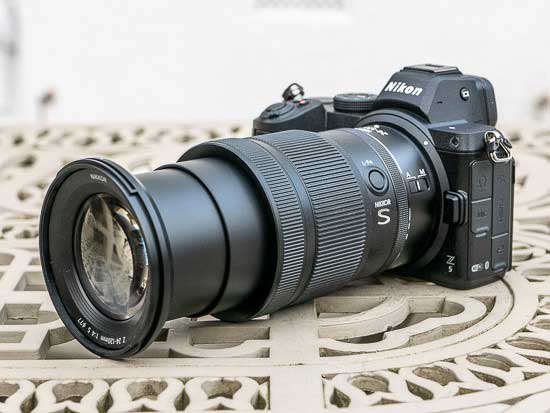
Note that there is no image stabilisation system built into this lens, instead relying on the camera body.
On the next section of the Z 24-120mm f/4 S lens, you’ll find the customisable function button, labeled as “L-Fn”. In the main camera menu, you can choose from one of 21 different functions, including AF lock, metering, subject tracking, framing grid display and so on.
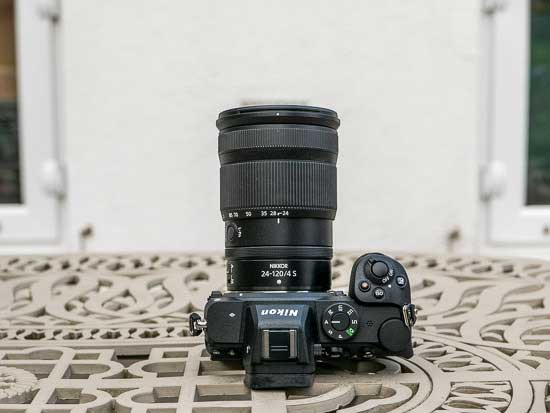
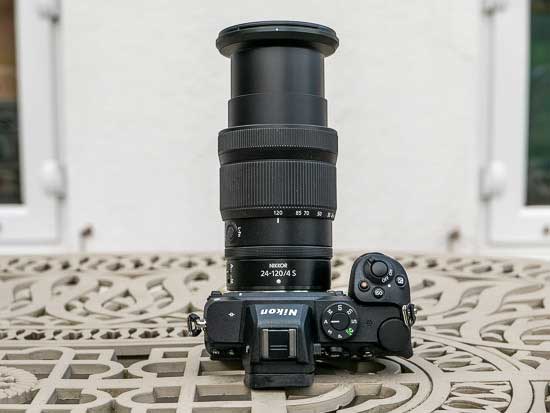
Towards the lens mount end of the Nikon Z 24-120mm f/4 S lens, there’s the first (and smallest) of the lens’ three rings. This lens can be customised, too. By default it is set to control aperture, but you can also change it to adjust exposure compensation or ISO. Alternatively you can have it set to do nothing at all.
The middle ring is the rather stiff zoom ring, which we hope will loosen up a little with use. It has focal lengths marked at 24, 28, 35, 50, 70, 85 and 120mm.
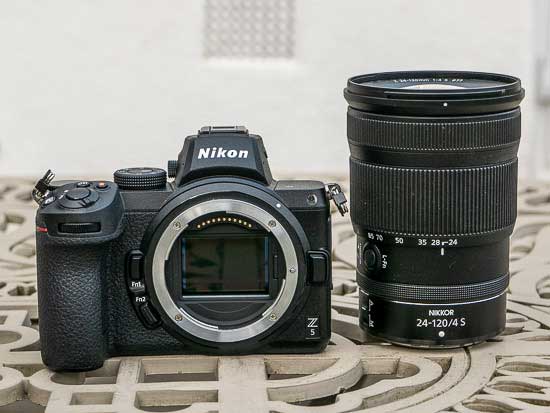
At the end of the lens, you’ll find the focusing ring. It has no hard stops at either end of the focusing ring, making it harder to know when you have reached infinity focusing. The ring has just enough resistance to make fine adjustments to manual focusing, without having too much give.
The focus and zoom lens rings are ridged and the control ring is knurled, helping you feel them by touch when shooting through the viewfinder. They also help to add to the high-quality and sturdy feel of the Nikon Z 24-120mm f/4 S lens.
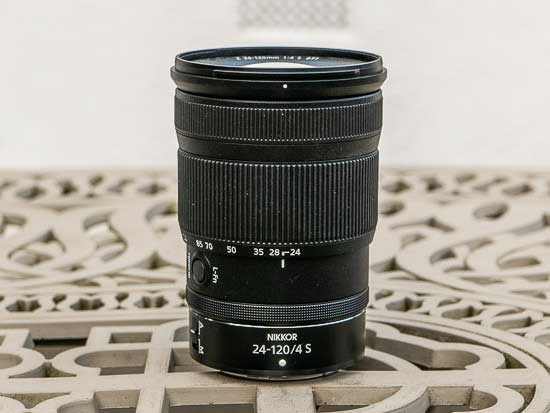
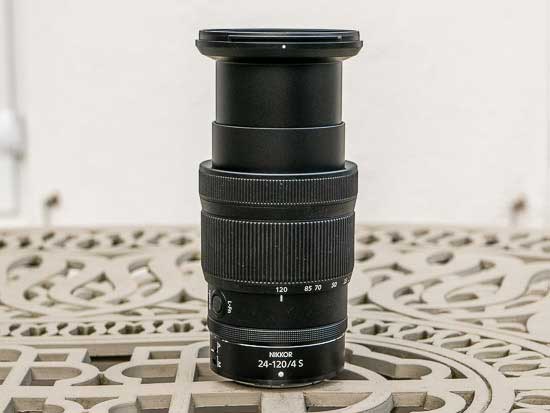
This lens has been designed to be as quick and quiet as possible when autofocusing with two AF drive units onboard. That makes it ideally suited to both stills shooting and video.
Shooting with the lens proves it to have almost unerringly accurate and rapid autofocus in the majority of situations, with barely any hunting at all. It’s also impressively quiet, too.
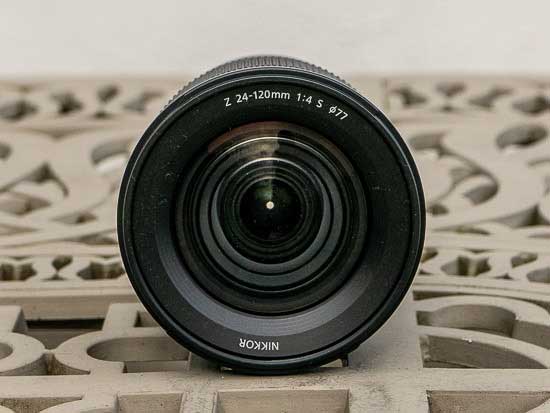
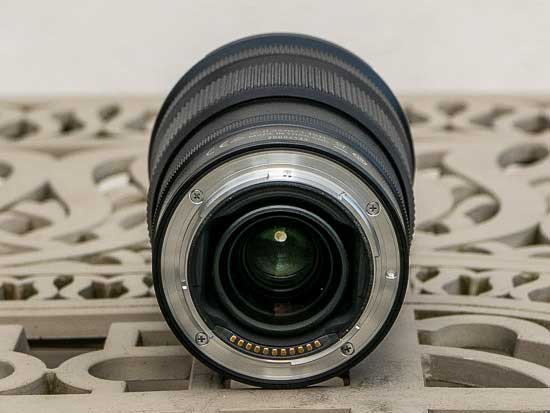
Included in the box is a petal-shaped lens hood (HB-102), which fits onto the Nikon Z 24-120mm f/4 S’ 77mm filter thread. The hood locks into place and is reversible so you can reduce the size of the lens for transporting it and storing it at a smaller size.
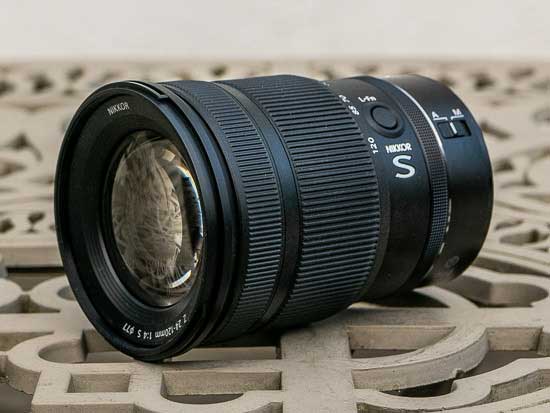
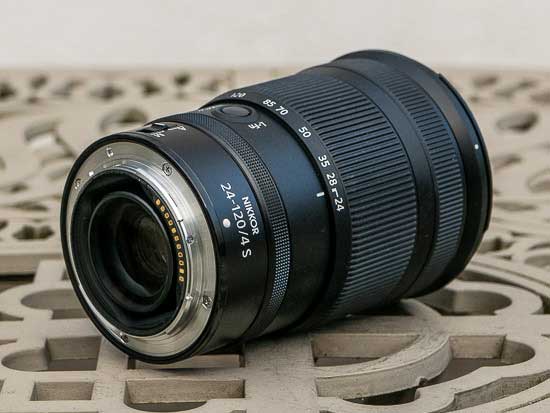
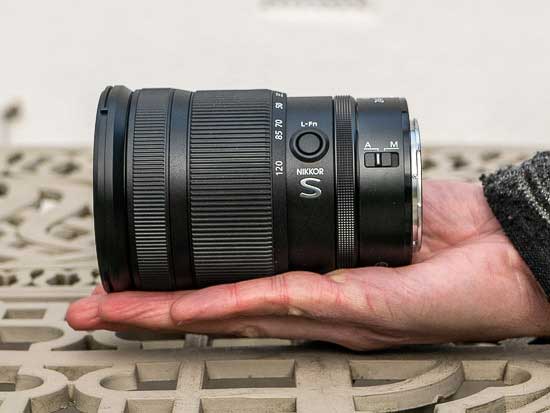
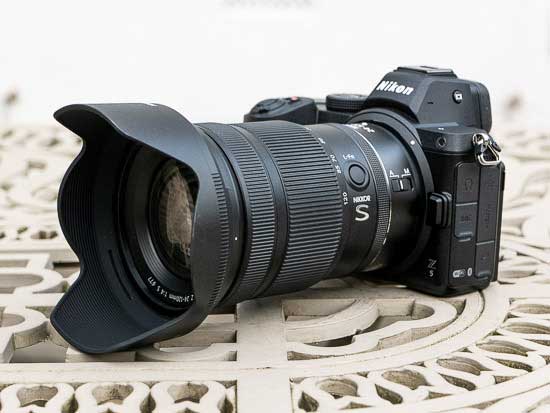
Focal Range
The Nikon Z 24-120mm f/4 S’s focal range provides an angle of view of 20° 20′ at 24mm and 84° at 120mm.
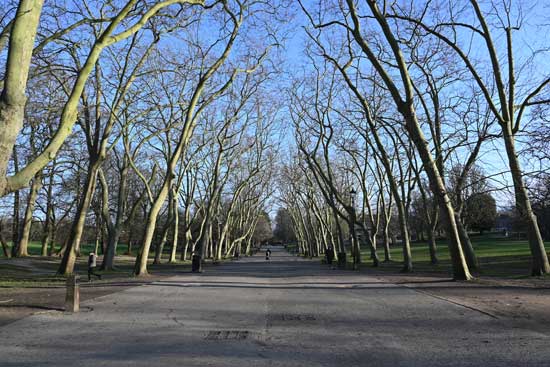
24mm
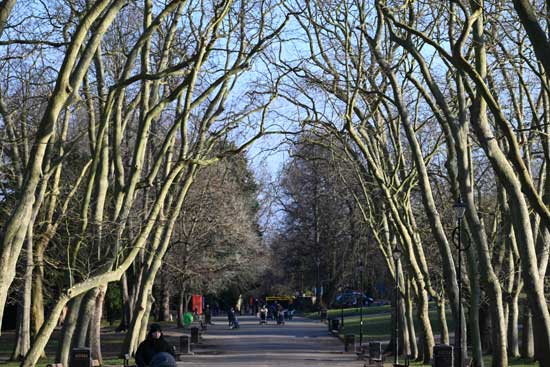
120mm
Chromatic Aberrations
Chromatic aberrations, typically seen as blue or purple fringes along contrasty edges, were not especially apparent in our test shots, only appearing in very high contrast areas.
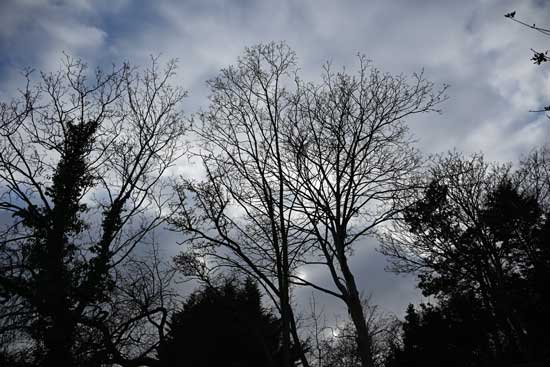
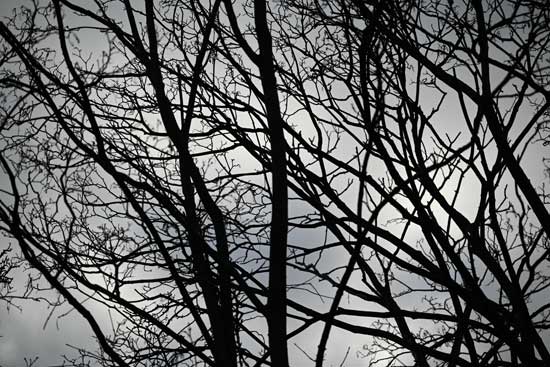
Vignetting
With the Nikon Z 24-120mm f/4 S lens set to its maximum aperture, there is some very obvious light fall-off in the corners, which you’ll either need to correct in post-processing or stop-down the aperture to avoid.
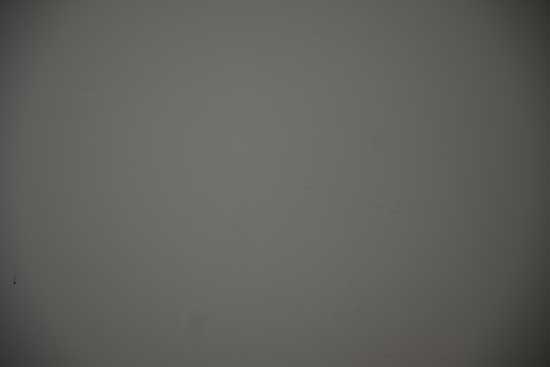
24mm

120mm
Distortion
There’s some mild barrel and pin-cushion distortion at either end of the focal range in both the JPEG and Raw files, but it’s not too pronounced.
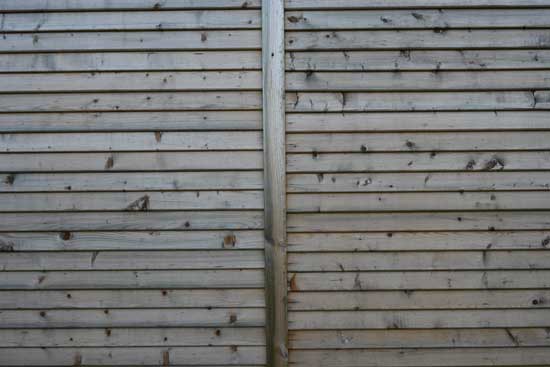
24mm

120mm
Sunstars and Flare
The Nikon Z 24-120mm f/4 S produces very nice sunstars when stopped-down to f/22, as shown below, although it is prone to flare when shooting directly into the sun even with the lens hood fitted.
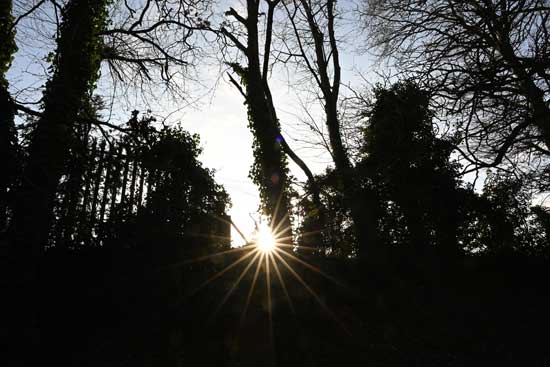
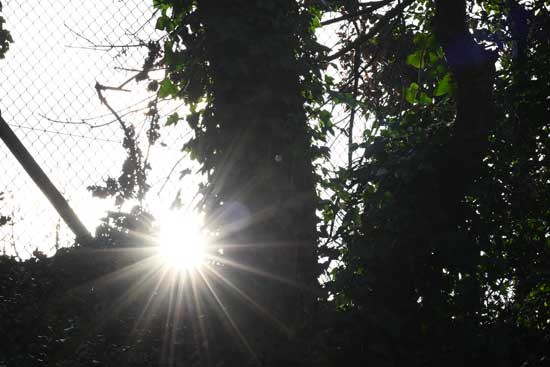
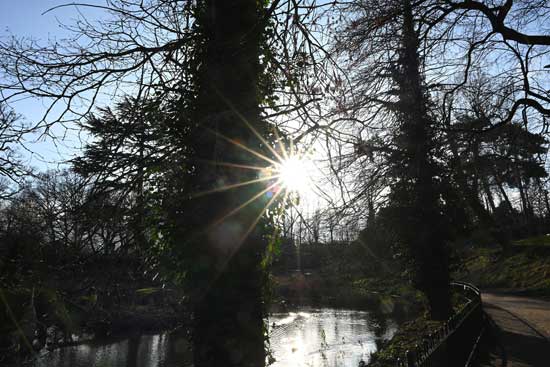
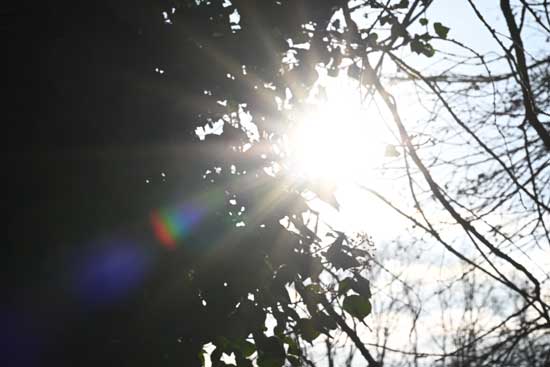
Macro
The Nikon Z 24-120mm f/4 S offers a minimum focusing distance of 0.35 m (1.15 ft) at all focal lengths, with a maximum magnification of 0.39x. This enables you to capture some fairly good close-up shots when shooting at the 120mm focal length.


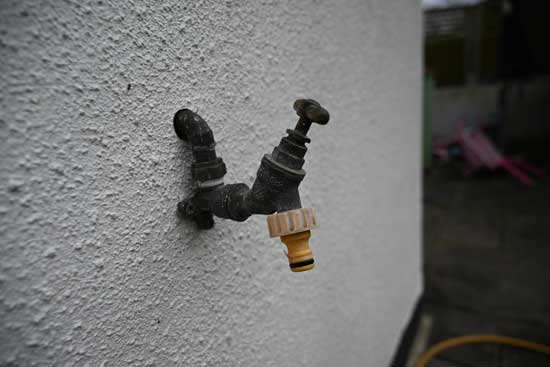

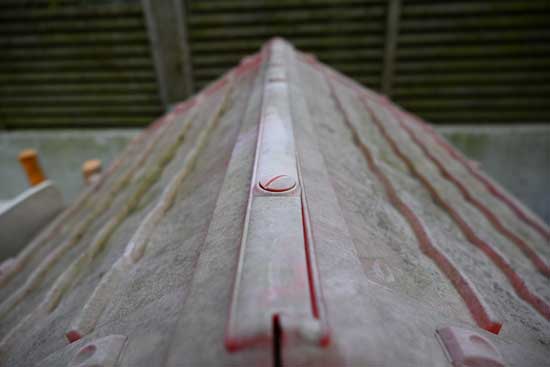

Bokeh
Bokeh is a word used for the out-of-focus areas of a photograph, and is usually described in qualitative terms, such as smooth / creamy / harsh etc.
In the Z 24-120mm f/4 S lens, Nikon have employed an iris diaphragm with 9 rounded blades, which combined with the rather slow maximum aperture results in fairly nice bokeh in our view.
We do realise, however, that bokeh evaluation is subjective, so we’ve included lots of examples below for your perusal.
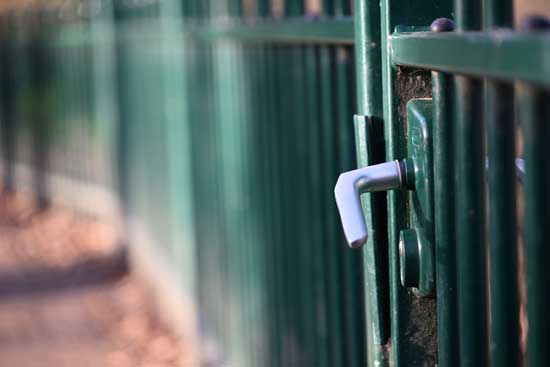
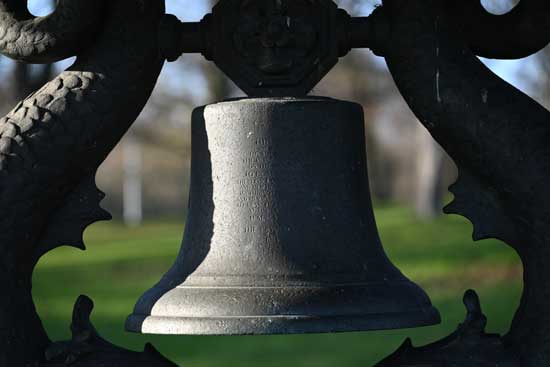
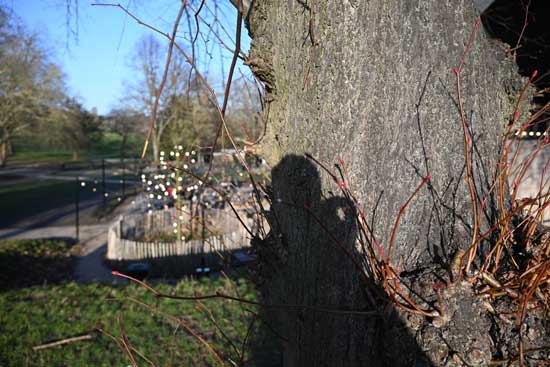
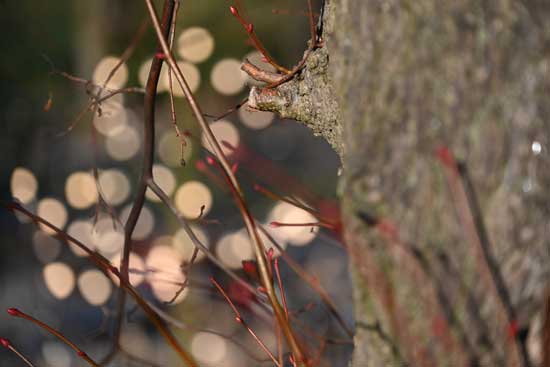
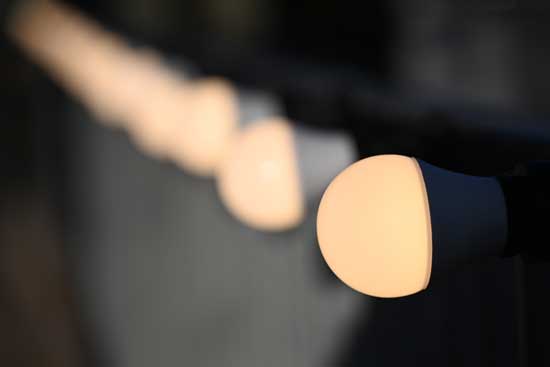
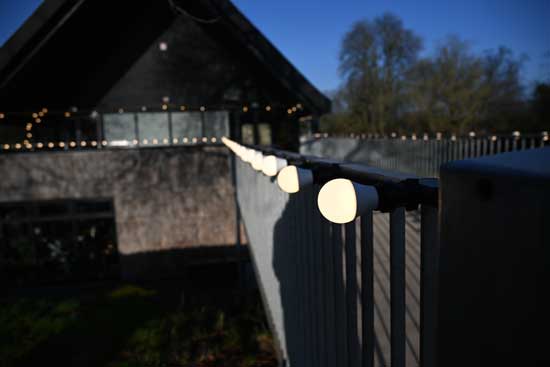
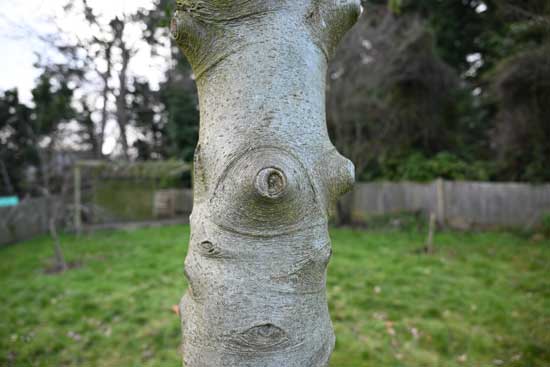
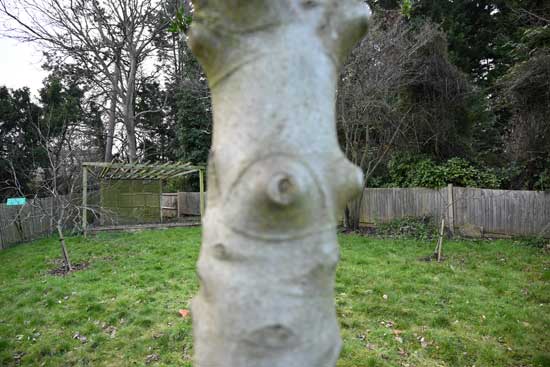
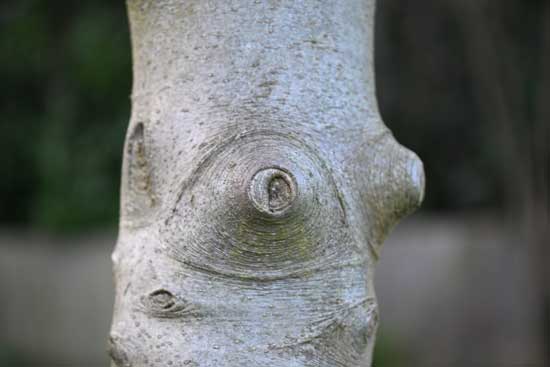
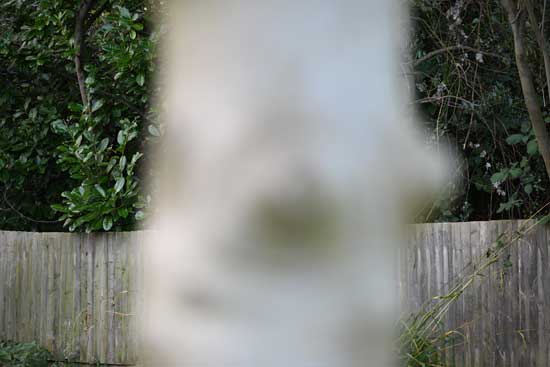
Sharpness
In order to show you how sharp the Nikon Z 24-120mm f/4 S lens is, we are providing 100% crops on the following pages.

